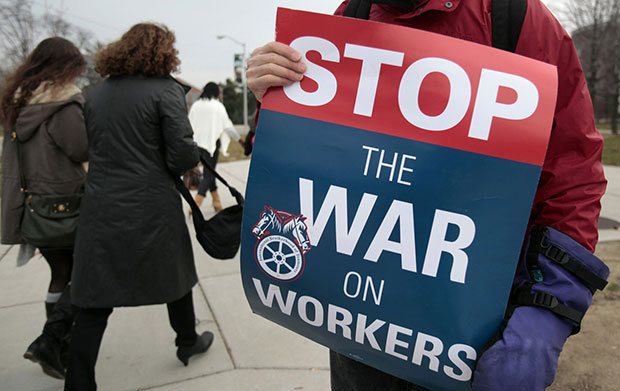Workers Don’t Need Trump to Give Them a Voice. They Need Unions.

The key to rebuilding the working class is labor organizing, not scapegoating people of color and immigrants.
By David Madland
As this election made clear, a lot of Americans are angry. They feel left behind by the economy, and isolated and unheard in our democracy. Some of this frustration is understandable—wages have hardly budged in decades, inequality is near record levels, and money dominates our political system (and those who don’t have much of it are usually ignored by politicians). That’s a recipe for frustration and alienation, and President-elect Donald Trump seized on it.
Trump promised economic security in part by scapegoating people of color and immigrants, and his supporters took the bait. Now we’re facing an administration that will make it exceedingly difficult to protect Americans’ basic rights—especially as its policy prescriptions “to rebuild the working class” prove hollow.
The long-term solution to current political and economic dissatisfaction is to give workers a productive way to advocate for themselves, not reassert race-based class structures. That means it’s time to rebuild unions.
Unions—more than any other organization—give people a real say in the economy and in politics. They help raise wages, reduce inequality, and boost economic mobility. But even more importantly, unions help people feel their own agency. They provide workers—particularly those with less education and lower incomes—with the means and opportunity to stand up for themselves and participate more fully in our democracy. Union members are much more likely to vote, take political action, join other groups, and be more charitable.
Unions serve as an alternative source of power that workers control—not the government, and not the wealthy. That’s why they’re one of the first things that authoritarian leaders go after.


